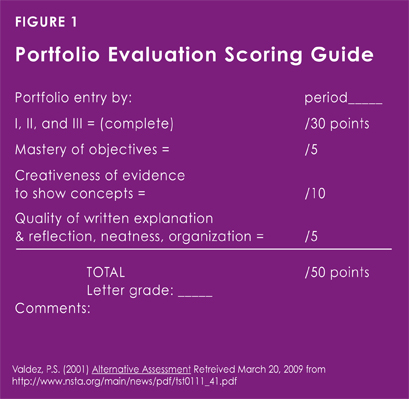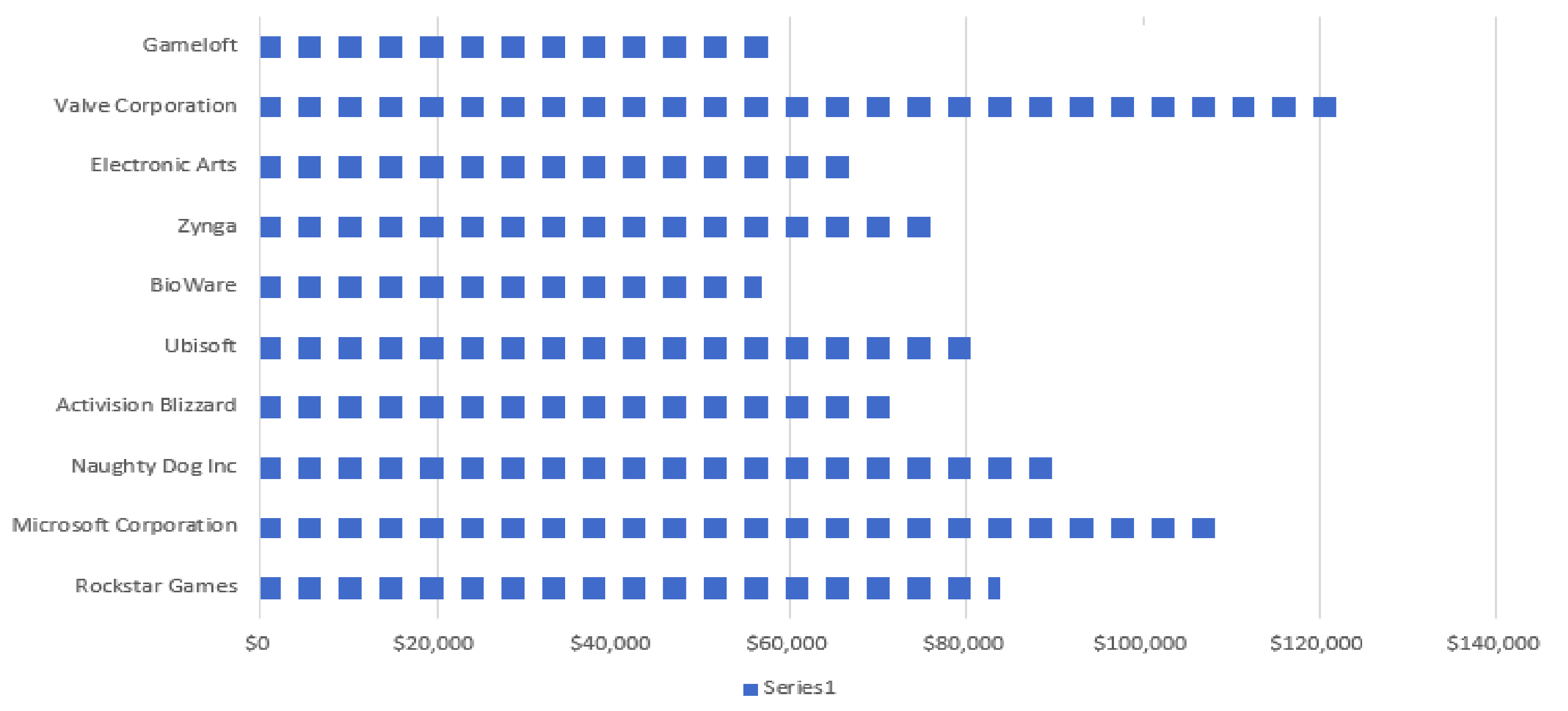Becoming a Video Game Designer: Lifting the Lid on Leveling Up
We all love video games, and most of us play them every day. Whether it's tapping away on our phones or button-mashing on bright keyboards, we're drawn to the colorful flashes, jaw-dropping action, and stunning stories. Who knows why we're so attracted to them, maybe it's just the appeal of nostalgic games that really get our engines humming.
We've got one group of people to thank for that: video game designers.
After spending all this time playing games, you might think to yourself: "I could make video games, too!" But then you may wonder: "Where do I even start? "How do I launch this new, awesome career as a video game designer?"
Don't worry — we've got you covered!
Here are all the tips, tricks, and pitfalls of becoming a video game designer.
What's in a Name?

Image CC0, by Maurício Mascaro, via Pexels
It's important to figure out what the role of a video game designer entails before the ball gets rolling.
While there are many jobs and titles and passionate people that go into making a game (such as artists, writers and more!), video game designers are really the jacks and jills of all trades. Not just some trades, all trades.
Some specialize in certain aspects of the gaming world (like level design or character concepts), while others have much broader roles such as 3D modeling or coding.
It's a pretty loose term that can be applied to writers, artists, programmers, testers and more, but they do share similarities! At the end of the day, a game video designer is, well, someone who designs games. That's all it really means!
Level 1–1

Image via GIPHY
Now that you understand the broader idea, let's identify just what you're looking to do. If you're a video game designer to be, you'll more than likely want to do one or more of the following:
- Create awesome games
- Tell fantastic stories
- Excite the imagination
- Break boundaries and push the envelope
- Develop the genre or expand the gaming universe
There's a lot you can do, and it may seem overwhelming, so let's take it one step at a time. And remember, making video games is almost always a team effort, so be sure you're comfortable collaborating and working for others.
Think Before You Leap
Remember it's not always sunshine and rainbows when you're turning your hobby into a business. Just because you love video games doesn't mean you'll love spending hours and years engrossed in intricacies!
Take a look at the nature of work you love to do and envision yourself in that environment.
There are hundreds of jobs revolving around video games. Whether it's production or marketing, public relations, law and legality of the video game industry, or just buying and selling, it's possible for you to find your niche in a position related to video games without actually designing them.
People who enjoy movies or music may feel they have enough talent to try their hand at them, but it can be very difficult turning your passions into a lucrative career.
Think about how well you manage stress and criticism and how much you want to pursue a career in video game creation.
And if you do, keep reading.
Brains and Bugs

Image CC0, via Wikimedia Commons
No game ever made has been created without a few bugs to smash or spray before release. There truly is no such thing as a perfect game. If you have a game that's fun to play but hard to understand or an amazing story with less-than-stellar gameplay, there's more than one way your game can go belly up before it even hits the shelves.
Often, it needs polishing and proper examination by talented individuals.
There's no way to ensure your game will be perfect, or your skills will be used properly, but there' are a few good ways to get started on the right path. It's better to take things slow and steady, rather than rushing headlong into something in which you're unprepared.
In the wise words of Shigeru Miyamoto, a long-time video game designer, and producer at Nintendo:
"A delayed game is eventually good, but a rushed game is forever bad."
Become One with the Game

Image via GIPHY
Now that you've decided to enter the gaming world as a video game designer, you'll need to think critically about the skills that will make you stand out. Plenty of people want to join the video game designer world, but not everyone is suitable.
According to a recent study by Indeed (an online employment search platform), the number of video game design and development jobs has dropped by almost 65% since 2014.
That's means of people are fighting to keep their seats filled.

Image via GIPHY
Still, you're a bright person with big hopes and a deep passion for gaming, so you'll have to prove you belong amongst the great video game houses of the world. After all, when more than 94 billion dollars are on the line each year, you can bet they will want the cream of the crop.
And that just so happens to be you.
It's Dangerous to Go Alone, Take This

Image via GIPHY
Let's talk shop and start you off slow.
You must find your feet before you can run, so here are two sets of skills you must have or be willing to learn when the time comes to take that long walk down the path of becoming a video game designer.
The Brawn

Image CC0, via Wikimedia Commons
Sensing a theme? You must be smart and flexible to be successful, but also must understand your place in the process.
Quick Maths

Image via GIPHY
Whether it's learning where to put your characters or understanding the physics of your game, you've must have a good understanding of math. You might be a math genius, but it's more than likely you've gone out and earned yourself a math degree. Some math and physics programs offer game design classes as part of their program, but some colleges include game design as its own degree with the necessary math tacked on!
Whatever your preference is you must know math, plain and simple. There's no getting around it. The most common form you'll find yourself using is linear algebra, as well as logic and discrete math (and the occasional bit of calculus and trigonometry.) Just enough math to tell your models where they are in your game, what they're interacting with and how the game is played.
Video games at their core are just numbers interacting with numbers so that means there will plenty of math involved.
Programmer? Pro-Gamer!

Image via GIPHY
To flex your character muscles and spatial skills, you must be able to translate what's up in your head through the tapping of your fingers. Many video game designers use a wide variety of coding and programming languages, and what works for one job or game engine may not always work for another.
A good place to start is having a working knowledge of C++. Famous household names like World of Warcraft, the Battlefield series and Call of Duty all use C++ in their production and development cycles.
That's just the start though! Many genres and fields use different coding (like Java or Python) across their platforms, so it's good if you have the know-how to pick up, learn and understand a variety of different digital dialects.
Simply put, you won't be able to make a game without knowing the coding. For artists on the more creative side of things, you're not safe either! You must understand how to inject your information and writing into the game's processes, and that usually requires coding and formatting!
Putting Some Skin in the Game

Image via GIPHY
Characters and buildings don't just magically plant themselves in your favorite games — they're placed and crafted by expert artists and modelers! All your favorite characters were, at one point, just a twinkle in the eye of their creator or a sketch on a piece of paper. How it gets from that paper to the screen is another story entirely. It involves finding and understanding how to use modeler programs and 3D studios.
Trying to find one to get started on is just a little trickier than finding a good programming language. There are dozens of good, reliable modeler studios out there, but more notable ones are Blender, Maya, and ZBrush.
While there are many modelers out there, don't fret! They use a lot of the same ideas, knowledge, and math to get the job done. While your skills won't exactly be one to one across different platforms, you'll outshine your competitors if you've at least experimented with using them before.
If you don't have stellar artistic skills, video game companies are always looking for writers, whether it be for dialogue, item descriptions, quest objectives and more. Anything to help make the game feel a little more alive.
Take a Seat, but Don't Get Comfy

Image via GIPHY
A large part of any video game designer's day is spent in a chair. Whether it be in an office or at home, you'll more than likely be in a communal space or cubicle surrounded by other awesome video game designers!
A good portion of video game designers and other office workers like them have higher than average rates of carpal tunnel syndrome (from all that typing and clicking), as well as bad posture and higher rates of obesity! Some companies have fought this with standing desks and mandatory stretch breaks, but it's really just up to you to watch out for yourself!
Just like you'd make sure your character was dressed to the nines and ready to fight the hardest of bosses, you'll also want to make sure you're ready for a challenge like that. Make sure to stretch and move often, fix your posture when you feel it slacking, and spend some time up on your feet! Make sure to keep yourself hydrated, get at least a little exercise.
Do that, and you'll be winning in no time.
There's No “I” in Video Game Designer, Right?

Image via GIPHY
Unless you're one of the lucky few people out there with the skills and the will to make your own game (like the solo minds behind Stardew Valley or Undertale), you will be working on a team.
Sometimes those teams are small and easy to manage. Larger projects or games being designed by AAA studios like Bethesda, EA or Blizzard? Those teams can reach tens and even hundreds!
Do your best to find your niche on a team or with a certain skill set, but always be open and honest about your skills and abilities. You want to be transparent with your team about what you can do and the areas in which you need help. For example, if you're the only one who knows how to do a difficult set of coding, but you're stuck doing basic level design? Speak up!
That said, there's a difference between a helping hand and a know-it-all. You'll be on a team, remember? And just like you'd want a perfect squad jumping into a mission or the right team to take on a particular Pokémon gym, you'll want to ensure your skills help and compliment the team, rather than trying to do it all yourself.
A Different Hat Each Day
While you may become a superstar in the modeling field or an expert in the logic systems that make characters move, you must stay loose and flexible! As team changes and projects evolve, they might ask you to shift gears. For example, let's say you're a phenomenal monster modeler, but a game your studio is developing doesn't have monsters. You'll still be expected to adapt and overcome such challenges if you want to stay in the studio.
Other times you may be expected to move to another completely different idea after one idea gets canceled! You may have to take a hard look at your work and evaluate how you're spending your time and effort. Sometimes you may be asked to do things you're not passionate about, like designing terrain, working NPC dialogue or taking meetings on business practices.
Be flexible, be loose and most importantly be ready. The world of game design is a complex monster, but if it can be slain, you'll have people clamoring over your hard work.
The Breakdown

Image via GIPHY
Here's a definitive list of skills and abilities you will need for game design with a studio
What will get you hired is how you sell yourself, what you do to stand out from the crowd and how you display your skills.
Not to worry though. We'll show you where and how to do that too.
Degrees of Separation

Image CC0, by Joshua McKnight, via Pexels
While a math or physics degree is offered at just about any 4-year college, game design degrees area little rarer and, therefore, harder to find. But they're out there!
According to the Princeton Review (a notable college admissions service), the top 25 schools/programs for undergraduate game design are:
- University of Southern California (Los Angeles)
- New York University (Brooklyn, NY)
- Becker College (Worcester, MA)
- DigiPen Institute of Technology (Redmond, WA)
- Hampshire College (Amherst, MA)
- Drexel University (Philadelphia, PA)
- Michigan State University (East Lansing)
- Rochester Institute of Technology (Rochester, NY)
- Worcester Polytechnic Institute (Worcester, MA)
- University of Utah (Salt Lake City)
- Miami University (Oxford, OH)
- Bradley University (Peoria, IL)
- University of Central Florida (Orlando)
- Cogswell College (San Jose, CA)
- LaSalle College Vancouver (Vancouver, British Columbia)
- Abertay University (Dundee, Scotland)
- Ferris State University (Big Rapids, MI)
- Laguna College of Art and Design (Laguna Beach, CA)
- Champlain College (Burlington, VT)
- Shawnee State University (Portsmouth, OH)
- University of Wisconsin-Stout (Menomonie, WI)
- Howest University of Applied Sciences (Kortrijk, Belgium)
- North Carolina State University (Raleigh)
- Abilene Christian University (Abilene, TX)
- Falmouth University (Penryn, Cornwall, UK)
There also are hosts of upper-level and graduate programs in video game design as well! They are (again, ranked by the Princeton Review):
- New York University (Brooklyn, NY)
- Southern Methodist University (Plano, TX)
- University of Southern California (Los Angeles)
- University of Utah (Salt Lake City)
- University of Central Florida (Orlando)
- DigiPen Institute of Technology (Redmond, WA)
- Rochester Institute of Technology (Rochester, NY)
- Michigan State University (East Lansing)
- Abertay University (Dundee, Scotland)
- Drexel University (Philadelphia, PA)
- Becker College (Worcester, MA)
- Worcester Polytechnic Institute (Worcester, MA)
- Laguna College of Art and Design (Laguna Beach, CA)
- Full Sail University (Winter Park, FL)
- University of California—Santa Cruz (Santa Clara, CA)
- University of Wisconsin—Stout (Menomonie, WI)
- University of Malta (Msida, Malta)
- Northeastern University (Boston, MA)
- Massachusetts Institute of Technology (Cambridge)
- DePaul University (Chicago, IL)
- The University of Texas at Dallas (Richardson, TX)
- Sacred Heart University (Fairfield, CT)
- Savannah College of Art and Design (Savannah, GA)
- American University (Washington, DC)
- University of Miami (Coral Gables, FL)
You'll notice a similarity between the two lists — the University of Southern California, New York University and DigiPen Institute of Technology all are rated highly for their programs. It would be in your best interest to check out these and others like them and snag a look at the various programs they have to offer. Some vary on tuition, accessibility, and depth. Some are offered online!
At the end of the day, it never hurts to check, right?

Image via GIPHY
Rising to the Top

Image via GIPHY
As in any field, how you spend your time and sell yourself will ultimately bring you the most success. Employers want to see drive, motivation, and effort. And dang it, many want to see you love video games as passionately as they do.
Be prepared to be bombarded with questions about your favorite games, genres, etc. that have impacted you as a person and as a creator.
If you're asked: "Why do you want to get into video games?" or "How did the video game define your childhood?" and you can't really answer? This probably isn't the field for you.
You want to get involved. Get active. Make waves. You can't do that if you don't spend your time striving to make an impact in the gaming world.
Flex Your Muscles: Making Good Portfolios

Image CC0, by COD Newsroom, via Flickr
Your portfolio is your resume in the creative world. Whether you'd like to be a writer, a programmer, a designer or more, you must have a portfolio that showcases not only the work you've done.
Think of it like this: traditional resumes have your work history, right? Portfolios just show off the more creative work. It's easier to show the art you've done for a game or the story you've made for a mobile app than it is to just talk about it. However, be sure to show your resume in your portfolio, too.
Start by identifying your best skills or what you want to pursue most. Or realistically, to what you're applying. If you're going for an artist position but have experience in level design and programming, have your portfolio include most of your art, with a few sections of level design and programming to show your versatility.
Make your portfolio easy to navigate — you can't sit there and guide your interviewer through your work after you've left the interview room. Include a table of contents and ensure there's a solid flow of information. Your work needs to speak for itself, and it does that best when there's structure to how it's presented.
It's also best to include your best/most recent work first and your more amateur/earlier work last. This will impress your interviewer as they'll see how you've evolved.
If you're an artist? Best art first, and your earlier designs last, showing your progress.
If you're a writer? Put your published work or the work you think best represents your writing skills first.
If you're a programmer? Include code you've worked on or developed and explain what it does.
If you're a modeler? Show examples of your 3D work from start to finish.
You should also be prepared for video game designers wanting to have this information as a digital source so they can share the files easily with a large group of people.
Make sure whatever format your portfolio is in, it's easy to navigate and understand. Use folders wisely and make sure it's evenly spaced and understandable and you'll have an award-winning portfolio in no time.

Image CC0, via Wikimedia Commons
Experience, It's Not Just from Quests

Image CC0, via Pexels
When you climb the mountain of video game design, many studios will want to see that you have some work history.
If you claim you're an amazing soon-to-be video game designer, but the only work experience on your resume is an unrelated job you worked at two summers ago? It's probably not going to look all that amazing to the interviewer.
Make sure you spend your time in college or your free-time wisely. There are many clubs, projects, and internships you can apply for at your own college or in your local area to showcase your skills in a low-risk, high-reward environment.

Image CC0, by Helena Lopes, via Pexels
Furthermore, large game studios like Blizzard, Electronic Arts and Bethesda (among many others) offer summer internships of six weeks or more. These internships are highly valued (and thus highly competitive) but get your foot in the door because in these roles you work alongside the pros.
If you impress during your internship, don't be surprised if that lands you a job offer.
Remember, it's not always what you know but sometimes who you know. Treat every coworker, whether they're above or below you, as a potential boss, interviewer or lifeline. You helping them today might land you a bigger, better job tomorrow.
Getting Your Foot in the Door

Image via GIPHY
You may ask yourself how you go about getting these exclusive internship offers. Well, it's important to keep an ear to the ground when it comes to these things, whether it be listening for what others in your field are pursuing or what your professors, friends, and mentors are suggesting.
The best way to do it? Occasionally visit your desired studio's sites. Plenty of them have information about job opportunities and internships already on the page, while others only have opportunities available while you're in school.
Here are some to get you started:
- Blizzard Entertainment - https://careers.blizzard.com/en-us/students/internships
- Electronic Arts - https://www.ea.com/careers/students
- Activision - https://www.activision.com/careers/students
Plenty more studios have internships and creative opportunities for students, learners, and beginners. Be sure to explore all the options you have at your disposal and apply to the ones that seem right for you!
Location, Location, Location

Image via GIPHY
(DESIGNER_START) Someone pointing or looking at an important map. (DESIGNER_END)
While it's all well and good that you want to develop and design games, the truth of the matter is that few people (if any!) are doing them in the middle of nowhere. Most video game developments are in large cities. Some top-ranked cities/areas for video game design are:
- 1San Francisco, CA
- 2Seattle, WA
- 3Los Angeles, CA
- 4New York, NY
- 5San Jose, CA
- 6Austin, TX
- 7Reno, NV
- 8Boston, MA
- 9San Diego, CA
- 10Las Vegas, CA
The reason you see so many gaming studios localized in the same state or area is because larger gaming studios often give birth to smaller indie projects—which become their own big gaming studio. As people are laid off, leave or pursue other projects, they invite others. The fact is, you must go them — they're not coming to you.
From Passion Projects to Plump Pockets

Image via GIPHY
Now, being excited and motivated and eager to change the gaming world is one thing, moving out to the city and getting the interview down is another, and payday is a whole other animal entirely. Here's a list of the average salary a game design can make at the following studios.
- Rockstar Games–$83,811 ($51,000–$103,000)
- Microsoft Corporation–$110,901 ($101,078–$119,525)
- Naughty Dog Inc–$90,817 ($60,960–$147,320)
- Activision Blizzard–$71,717 ($58,438–$97,479)
- Ubisoft–$82,616 ($75,848–$87,000)
- BioWare–$56,917 ($54,751–$61,000)
- Zynga–$78,858 ($56,718–$97,793)
- Electronic Arts–$66,891 ($42,116–$98,155)
- Valve Corporation–$121K–$130K ($119,735–$131,205)
- Gameloft–$57,829 ($50,000–$65,195)

Keep in mind; these are some higher-paying and more successful studios, many with famous titles under their belts. Your smaller indie developer may offer half the going rate as listed above or pay you on a contractual basis. Don't sweat though! You're pursuing your dreams and flexing out in a field that makes you happy. Better than doing some boring office work, right?
Sometimes you might be paid hourly, other times you might be salaried. Games might flop, or they might become smash hits!
The best games rise to the top, and the flops fade out of existence. The world of game design can be very, very volatile.
Step-by-Step, Bit-by-Bit

Image via GIPHY
There are quite a few ways to learn video game design that we've talked about, but we'll try to break it down.
The Path of Least Resistance

Image via GIPHY
- Have an interest in creating video games
- Learn some basics on your own, such as coding, programming, and level design
- Get involved in a small project or passion piece and flex your skills as best you can
- You are now a video game designer (technically)
The Path of Greatest Success

Image via GIPHY
- Have an interest in creating video games
- Pursue the focus and degree of your desire at an accredited 4-year university
- While at university, involve yourself in extracurriculars and opportunities that will allow you to build and expand your marketable portfolio and skill set
- Seek out internships and jobs that are related to your field of interest
- Create a portfolio
- Interview
- Get hired
- You are now a video game designer (technically)
While these are not the end-all, be-all for ways to becoming a video game designer, they are two of the most common paths.
Remember: individual will and effort can override the norms and conventions of the day! If you can show your stuff without a degree, more power to you! If you can sit down and while away the hours on your own personal game? Great!
Whether you are working alone or as part of a team, it's going to be a bumpy road ahead.

Image via GIPHY
Armed and Ready

Image CC0, by Kevin Bidwell, via Pexels
Of course, we would not throw you out onto that road without some more resources to take a look at. Don't think of it as homework but think of it as some armor ready to help. Here are some of the sources we've consulted and read through, as well as a bunch of things we think will help you out on the long road ahead.
Light Reading

Image via GIPHY
The Art of Game Design by Jesse Schell
This is a great book that challenges your perspective on how games are made and what makes games interesting.
The Ultimate Guide to Video Game Writing and Design by Flint Dille and John Zuur Platten
Another great volume about the writing, design, and effort that goes into a game — with unique perspectives from game designers in the midst of making games.
Drawing Basics and Video Game Art: Classic to Cutting-Edge Art Techniques for Winning Video Game Design by Chris Solarski
A great guide on how to get started drawing, and some of the tips and tricks that go into drawing specifically for video games (such as characters and concept art).
Heavy Armor

Image via GIPHY
Basic Principles of Game Design - Brackeys (https://www.youtube.com/watch?v=G8AT01tuyrk)
A fantastic walk-through of the basics behind game design.
Top 10 Tips for Getting Into The Video Game Industry - WatchMojo.com(https://www.youtube.com/watch?v=3SH3CPJhthE)
A quick and dirty list for good tips to keep in mind and on hand!
Day at Work: Video Game Designer - ConnectEd (https://www.youtube.com/watch?v=c0o6BPYKBiA)
A walk-through of the daily life of a video game designer named Kim — how she got there, what she's doing and where she's going in her field.
The Final Battle

Image via GIPHY
Once you've gathered your knowledge, proven your worth and secured your place, it's going to be up to you to keep it. The gaming industry has plenty of turnover, and plenty more people clamoring for your job.
Now that you've beaten out the rest of the hopefuls, it's up to you to defend your championship title. You'll be constantly reviewed and tested to make sure that your skills are an invaluable set to the team, rather than being replaced by the reader who's back at reading our section, Level 1-1.
Remember, stay true to your passion: You love video games.
Never lose sight of that, never stop trying, and in the words of Peppy Hare from Star Fox 64...
"Never give up! Trust your instincts!"

Image via GIPHY


